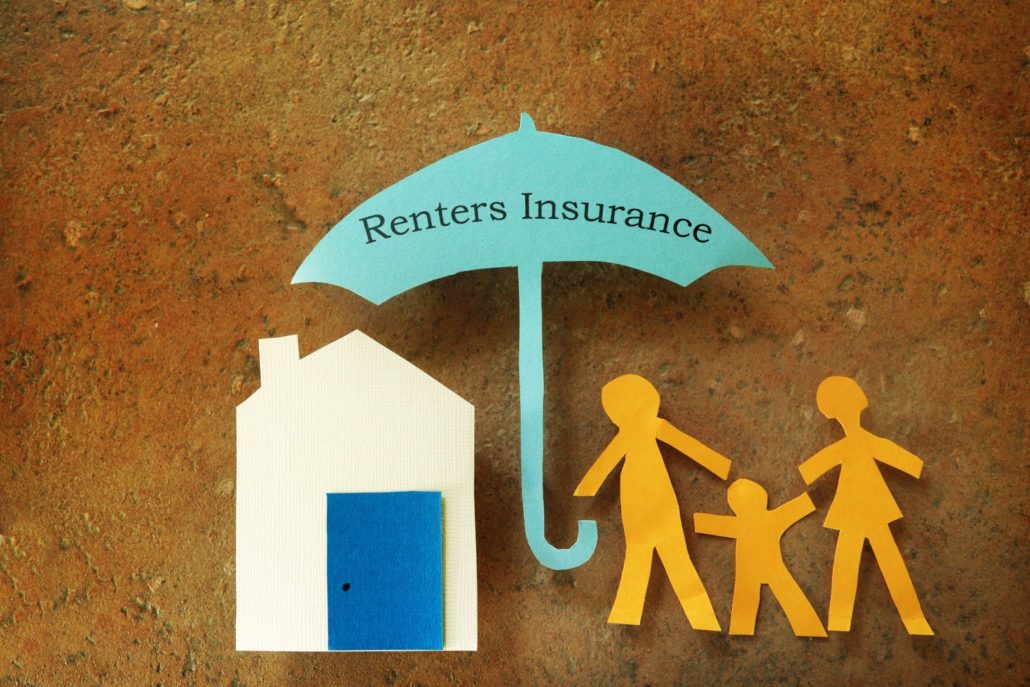Your Guide to Renters Insurance
Protect Your Assets and belongings with Renters Insurance.
Protect Your Assets and belongings with Renters Insurance.

Get trusted coverage on the possessions that make your space your own.
At Dickey McCay, we know that a rental is just as much “home” as any fully-owned house – it’s here that you relax, hang out with friends and family, and make plans for the future.
It’s your base of operations, the center point of your life. That’s why it’s so important that, if you’re a tenant, you insure your rented apartment, house, or condo with renters insurance.
As important as renters insurance coverage is, it’s usually the most overlooked and misunderstood type of insurance policy.
We’re here to help! Read on to learn just what home renters insurance is and why you should strongly consider having it as a renter.
To understand renters’ insurance, let’s look at a more frequently discussed type of coverage: home insurance, also known as homeowners insurance.
Home insurance is coverage that helps homeowners pay for damages caused to the structure of their home through events like house fires or storms.
It also helps insure items that are damaged by such catastrophic events, or even those that are stolen from the policyholder’s home or vehicle.
Renters insurance is basically the same thing – it’s a type of home insurance available for people who rent their home instead of owning it.
Renters insurance policies afford all the same coverage as regular home insurance with one notable exception – structural damage to the building. This would be the landlord’s responsibility, something they almost certainly have a separate policy for.
Renters insurance is about protecting the renter’s assets.
Typically, all forms of renters insurance provide three types of coverage: 1) personal property, 2) liability, and 3) additional living expenses.
When life happens, these can be incredibly useful and are well worth the typical renters insurance cost. Let’s take a quick look at each.
Homeowners may decide to rent part or all of their home/s through VRBO, Airbnb or other private Vacation Rental Management Companies. It is a good source of extra income but not all Vacation Rentals are insured the same. For example, Jane and John Doe live on the lake and have a very nice finished basement.

Choose the right renters insurance for short term, and vacation rentals.
They have decided to rent it out on a weekend/weekly basis. This is their primary home so they would need to inform their current insurance carrier and verify whether or not any damage or injury would be covered. Their carrier may or may not allow this type of rental exposure.
All Insurance Carriers are not the same on their guidelines when it comes to rental situations. Each is treated differently based on how the home is owned, used and rented. When making the decision to rent a home, it is best to call your agent and talk about how your particular carrier will insure the home. Dickey McCay has several carriers that can accommodate all types of rental insurance from weekend/weekly’s to long term rentals.
As a renter, personal property coverage helps insure items you own: your furniture, electronics, instruments, appliances, etc. For instance, say a fire breaks out in your apartment – you call the fire department and the fire is extinguished, but your desk, chair, and sofa are ruined. With personal property coverage, your insurance provider will step in and reimburse you for the loss.
The same applies if someone breaks into your rental and steals any items, or even if they’re stolen from your car. Usually, you’ll have to pay a small amount toward the replacements yourself. This cost is called the deductible. There will also typically be a limit to how much value can be reimbursed, referred to as your coverage limit. While personal property coverage doesn’t mean you won’t have to pay anything to get new items, it does mean you’ll pay much less than if you didn’t have renters insurance!

Speak to a renters insurance expert at Dickey McCay Insurance.
We try to keep our homes as safe as possible, but accidents do happen – maybe you have a kid and, try as you might, their toys seem to be constantly scattered around the floor.
You’re pretty sure you’ve put them all away, only for you to discover that you did indeed miss one as your guest slips and hits their head on the floor.
Now they’re suing, and you don’t have the money to pay for a bunch of court proceedings.
Fortunately, if you have renters insurance with liability coverage, your provider will pay for legal fees – the standard renters insurance policy will provide around $100,000 in fees.
Liability coverage does more than help you deal with litigious visitors, though: say you have a fire, and the apartment next door is also damaged. Your provider will step in here, too, covering any costs you’re found to owe.
Keep in mind that liability insurance only applies to other people – if you yourself get injured, that’s where you’ll want to have a good health insurance plan.
If catastrophe strikes the building you live in, you may find yourself in a situation where you need to move out for a while while repairs are ongoing.
This is where additional living expenses coverage comes into the picture: it’ll pay for things like hotel stays and meals eaten out, as well as visits to the laundromat (if your temporary dwelling doesn’t provide access to a washing machine and dryer) and storage space for your personal property.

Take comfort that you won’t have to stress about the details during a loss.
The answer to the question “How much does renters insurance cost?” varies, but the average cost of renters insurance is around $15 a month – this makes it very affordable for most people. This translates to around $180 a year. With how cheap renters insurance plans are and the level of protection they afford, it’s hard to argue against buying a policy.
Not all renters insurance plans are the same – besides deductibles, one very important difference from option to option is the coverage limit.
As mentioned, your coverage limit is a cap on what your insurance provider will pay to reimburse you for damaged or stolen items. The average coverage limit for personal property is around $30,000, so you don’t need the best renters insurance plan available to have a healthy amount of protection.
To figure out if you do need a higher coverage limit, take an inventory of all your items. Determine their collective value and how much it would cost to replace them. If you have any specific items of higher value you want to insure, such as jewelry, you may want to purchase riders, which provide coverage for individual items.
While we don’t like to inundate people with insurance lingo – you can leave that to us! – one thing that’s very important to be aware of are the two types of personal property coverage: actual cash value and replacement cost.
Say you bought a laptop 5 years ago for $1,500, and it becomes damaged by a covered peril. Well, as a result of depreciation that laptop will no longer be worth $1,500. If your provider uses actual cash value, they’ll pay you the current fair market price, perhaps $700. Replacement cost, on the other hand, will pay you the amount you need to get a similar laptop, even if it’s more money than the fair market price.

Build your customized renters coverage at an agency with a combined 80+ years of experience.
Sometimes – especially when it comes to making such an important decision as choosing which insurance plan and provider you go with – you need a bit of help.
With all the technical lingo, insurance is for sure one field that’s never easy to navigate on your own.
We’re here for you- with a combined 80 years of experience, the Dickey McCay team knows all the ins-and-outs and how to find you the best renters insurance plan for your needs.
We live in the same towns and neighborhoods as our clientele and pride ourselves on ensuring everyone has the protection they deserve.
Cooperhill, Tennessee – (423) 496-3366
Tellico Plains, TN – (423) 253-3524
Georgia – (888) 978-7843
Sunday: Closed
Monday: 8:30am – 4:45pm
Tuesday: 8:30am – 4:45pm
Wednesday: 8:30am – 4:30pm
Thursday: 8:30am – 4:45pm
Friday: 8:30am – 4:45pm
Saturday: 9:00am – 12:00pm
Phone: 423-496-3366
Toll Free: 855-876-9779
Fax: 423-496-3368
146 Ocoee St.
P.O. Box 1161
Copperhill, Tennessee 37317
